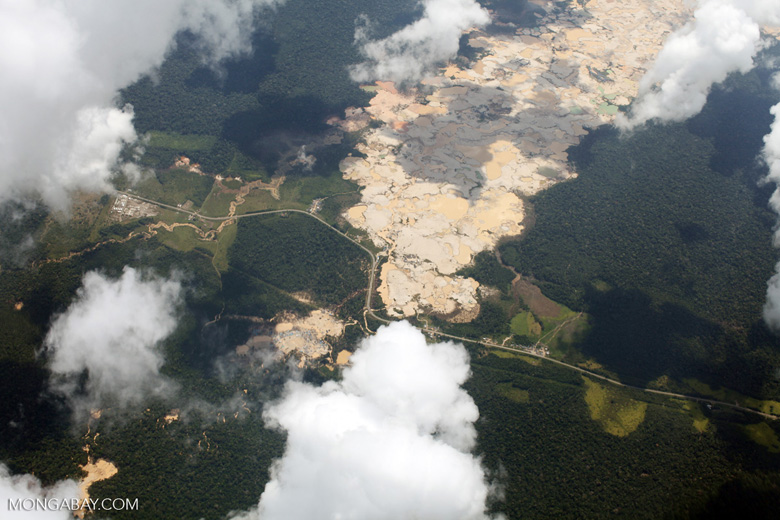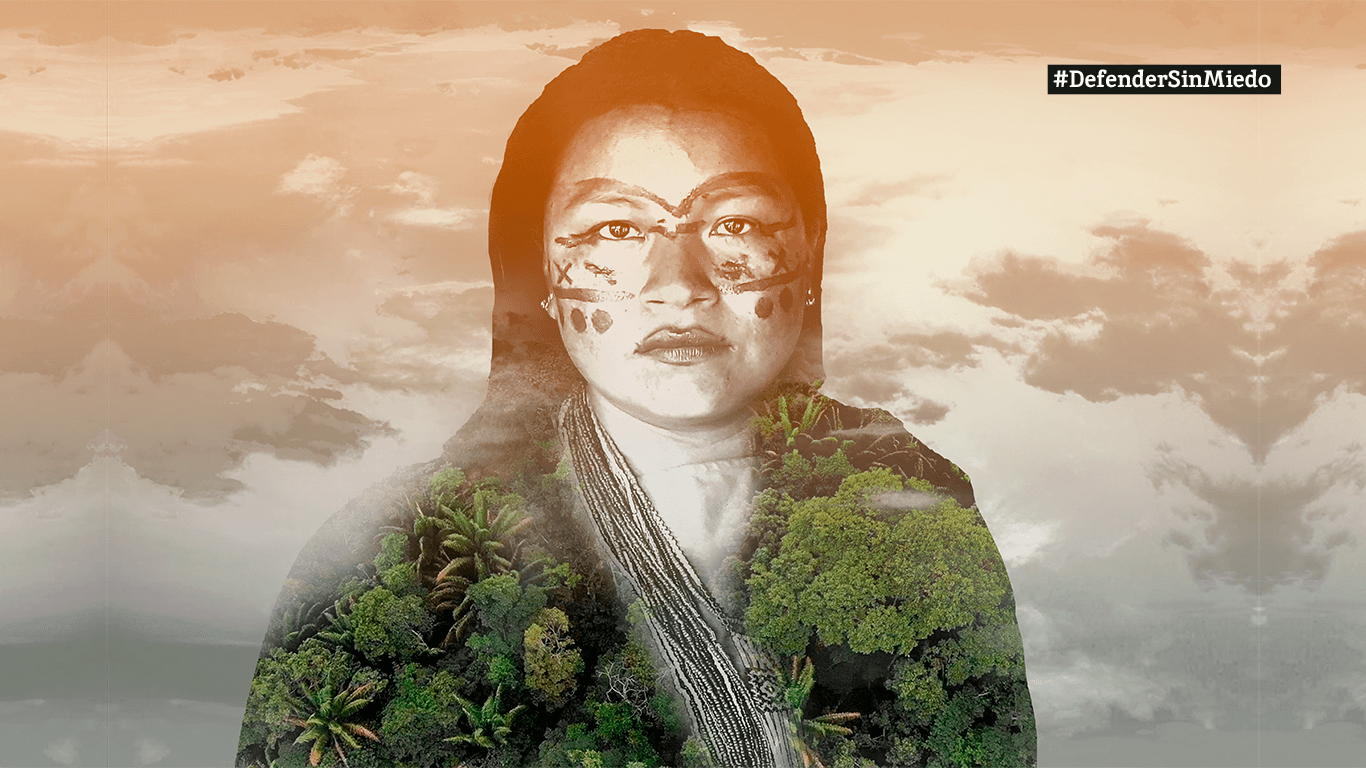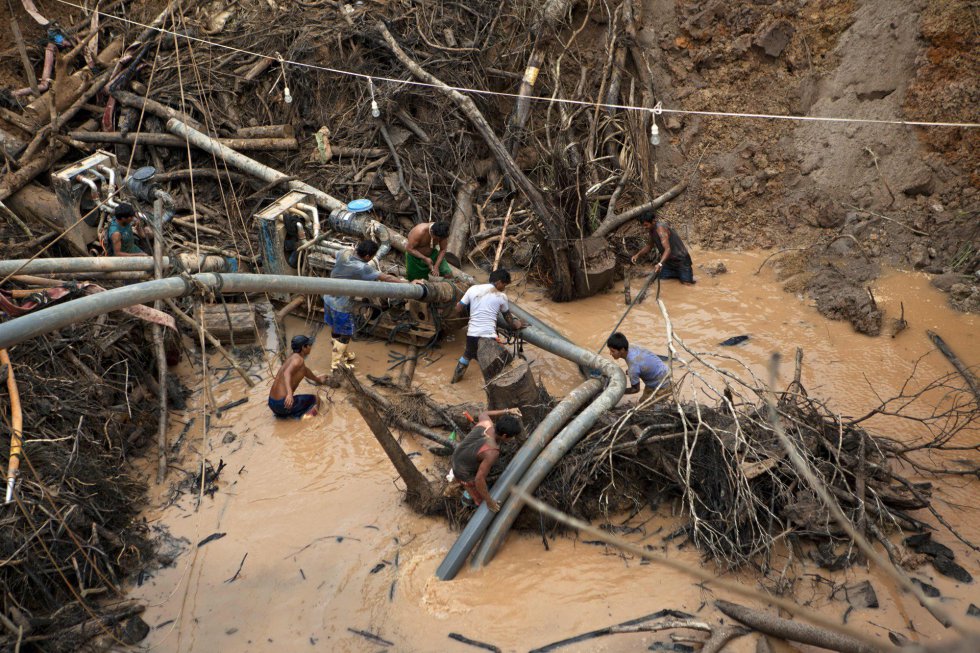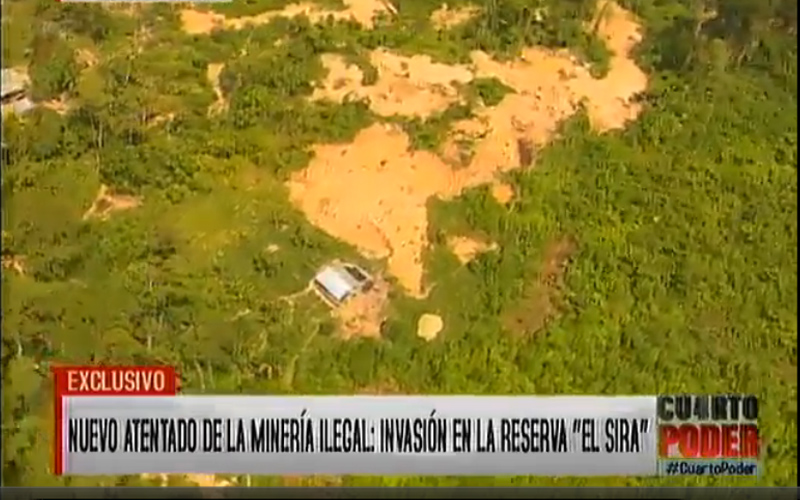The murder—which coincides with the expansion of illegal gold mining into the Tambopata National Reserve in the Madre de Dios region— could frighten other opponents of mining into silence.
The son of the president of a reforestation association who was murdered on November 19 vowed to continue his father’s work in Peru’s southern Amazonian forest.
“We want to be sure that our father did not die in vain,” Freddy Vracko told Mongabay in a telephone interview.
But the murder—which coincides with the expansion of illegal gold mining into the Tambopata National Reserve in the Madre de Dios region— could frighten other opponents of mining into silence.
Masked gunmen killed Alfredo Vracko, 59, at his home on the Interoceanic Highway in Peru’s Madre de Dios region. His son said it appeared to be a targeted assassination, as there was no robbery. The younger Vracko blamed the murder on illegal miners who had invaded his father’s reforestation concession late last year.
Alfredo Vracko had filed a formal complaint about the invasion with the prosecutor’s office. Then, on November 13, a scheduled raid to evict the miners was postponed until November 19 because police were unavailable, Freddy Vracko said.
On that day, police, the prosecutor and government officials from the regional office responsible for forestry traveled to the property, but the raid was called off again because the representative of the regional office of mining did not show up, he said.
His father was murdered that evening, almost exactly a year after another member of the reforestation association, Sixto Fernández, was killed under similar circumstances, Freddy Vracko said.
Alfredo Vracko had settled on the land in the Amazonian lowlands, not far from the Madre de Dios River, in 1975. The family had about 1,000 hectares along the highway cleared for agriculture, while another 2,543 hectares, about two kilometers back from the road, is in a 40-year reforestation concession.
The property is across the Interoceanic Highway from the buffer zone of the Tambopata National Reserve, in an area known as La Pampa, which has been a hot spot for illegal mining for nearly a decade.
Legislation aimed at combating the problem and repeated police raids have failed to dislodge the miners. Satellite images show about 1,700 hectares of mature forests have disappeared in La Pampa between 2013 and 2015.
Vracko managed the concession for small-scale timber production and operated a sawmill on the property, his son said. But when miners began working inside the concession boundaries, his father faced a dilemma.

If he did not file an official report with the Peruvian forestry regulatory agency, OSINFOR, regulators could cancel the concession on the grounds that he was allowing illegal miners to operate there. By reporting the mining, however, he launched an official investigation that put his life in danger.
“The government transfers the responsibility to the concession holder,” Freddy Vracko said.
He said his family has received expressions of solidarity from other concession holders and farmers in the region, but he and others see his father’s murder as a warning that the same thing could happen to others who oppose unauthorized miners.
Meanwhile, new satellite images show expansion of mining since September 2014 along the Malinowski River, which forms the border of the Tambopata National Reserve.
Miners recently crossed the river from the buffer zone into the reserve itself, according to Mariano Castro, vice minister of the environment.

Satellite images also show the expansion of fields of coca, the raw ingredient used to make cocaine, in the neighboring Bahuaja Sonene National Park. And the ministries of Environment and Economy and Finance are facing off against the Madre de Dios regional government over construction of a new road near Manu National Park.
The regional government, which is headed by former head of the regional miners’ association, Luis Otsuka, is promoting the construction. The project has the support of Amado Romero, another former president of the miners’ association who is now a national congressman.
Otsuka supported an indefinite regional strike that began November 23, in which thousands of people took to the streets of Puerto Maldonado, capital of the Madre de Dios region, to protest laws that restrict the sale of gasoline — used to power the miners’ machinery — and illegal logging in the region.
The protesters blocked streets, cutting off access to the airport at one point, and businesses closed. Leaders of the strike planned to travel to Lima late this week to meet with members of Congress and ask that the laws be overturned.
– This report was originally published in Mongabay and is republished by an agreement to share content.





